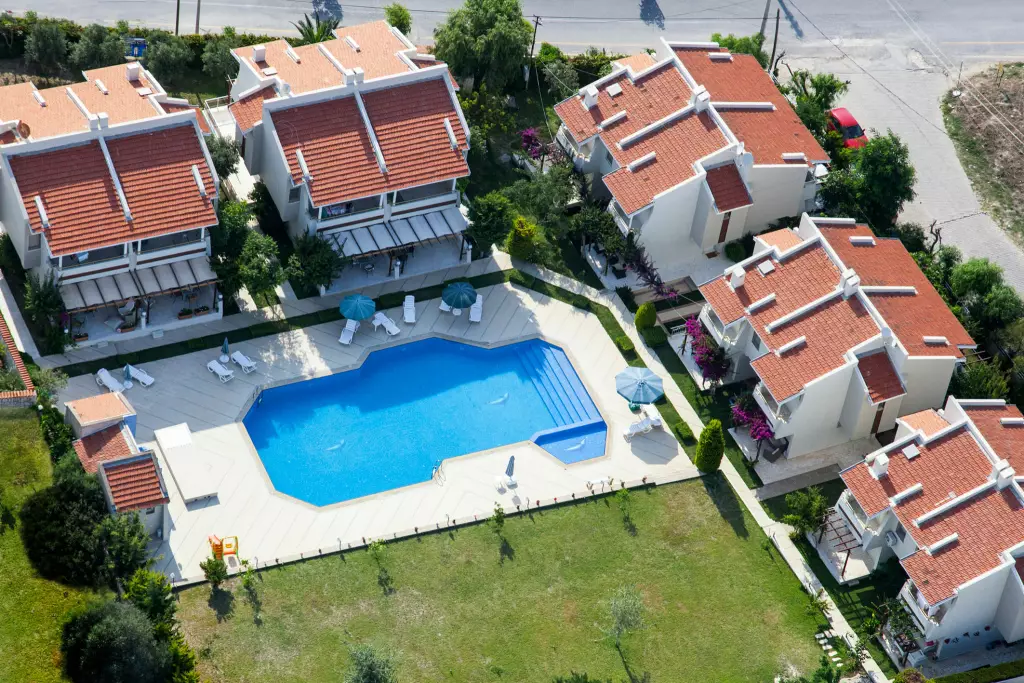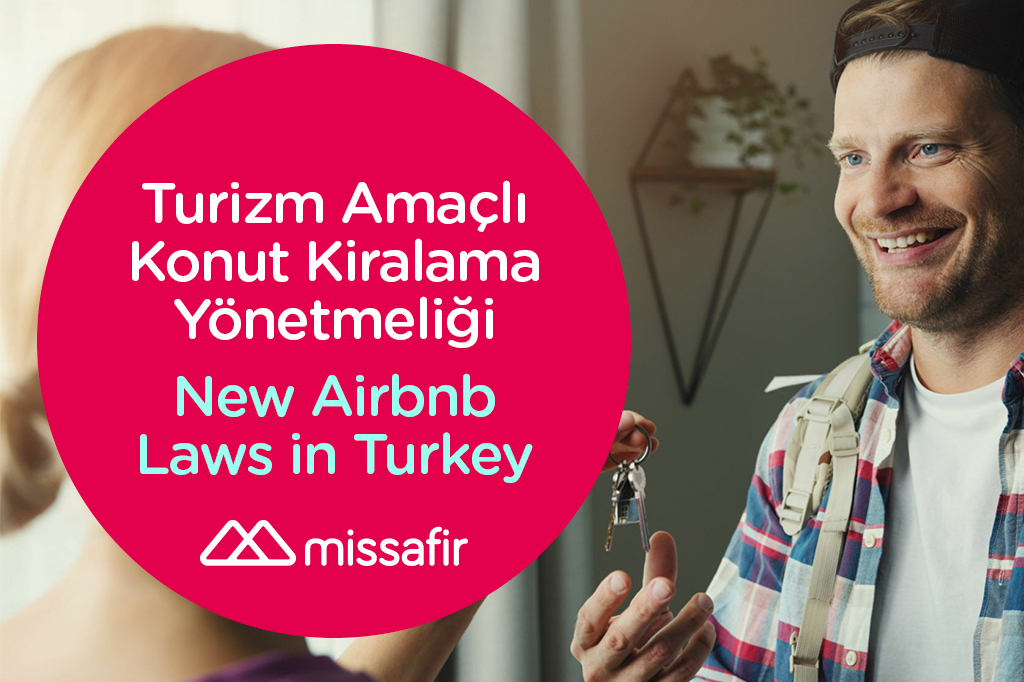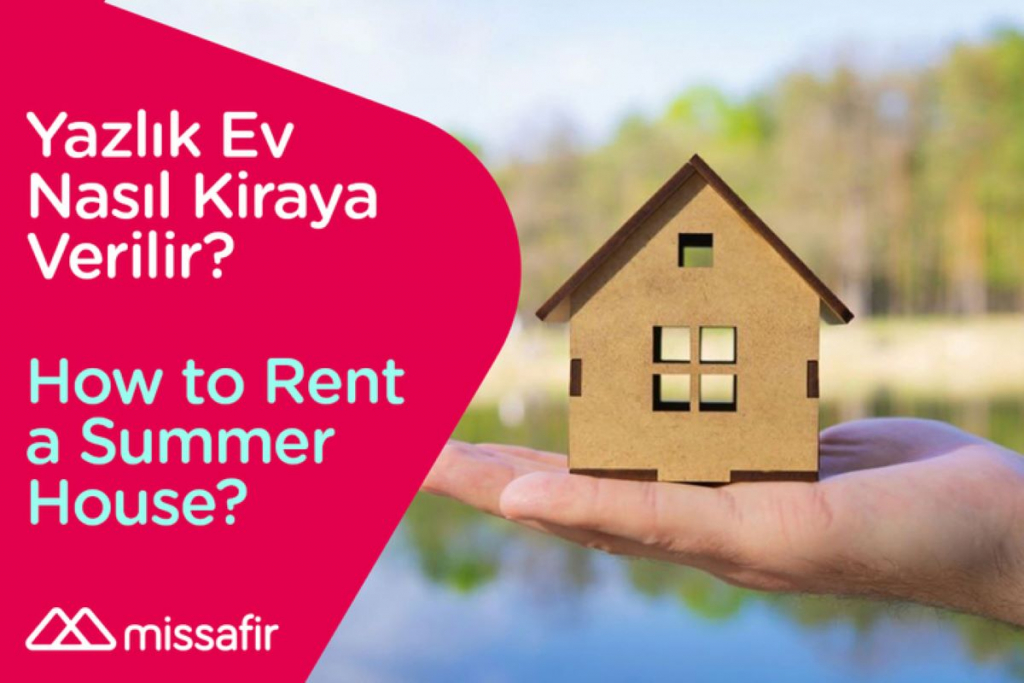The regulation for residential rentals for tourism purposes, which has been a hot topic under various names, like the new Airbnb laws in Turkey, the under-100-day rental rule, and the daily rental legislation, has become more apparent with the publication of the new regulation on December 28, 2023.
This regulation, which governs the activities related to renting residential properties for tourism purposes, is relevant to anyone interested in renting any type of residence for less than 100 days, often referred to as short-term home rentals in industry terms. As the law governing residential rentals for tourism purposes has yet to be implemented and is new legislation, we expect to see more developments in this area.
Remember to add the Missafir Blog to your favorites for the latest news related to tourism residences.
The objective of the Regulation for Residential Rentals for Tourism Purposes (Article 1)
This new regulation, published by the Ministry of Culture and Tourism, aims to regulate the processes of renting residential properties for tourism purposes. The regulation specifically sets out the rules and standards for renting residences for tourism purposes for one hundred days or less.
This regulation can be seen as a significant step in the tourism sector, as there wasn’t a clear framework for short-term home rentals. With the introduction of this regulation, homeowners and renters will have a better understanding of what is required of them, leading to more transparent and orderly procedures in renting residential properties for tourism purposes.
Scope Summary (Article 2)
The regulation organizes the processes for renting homes for tourism purposes, both for Turkish citizens and foreigners, for periods of 100 days or shorter. This means if you want to rent your home to foreigners daily, this regulation applies to you.
Under this regulation, you’ll find details about how the home you want to rent should be, what you need to do to obtain a permit and the rules and rights for both homeowners and renters.
In short, if you want to rent your home for tourism purposes, you are subject to this regulation, and non-compliance could result in penalties.
New Airbnb Laws in Turkey: Legal Basis (Article 3)
This article specifies the reason and legal basis for the regulation.
The regulation is based on Article 6 of Law No. 7464, titled “Law on the Rental of Residences for Tourism Purposes and Amendments to Some Laws,” enacted on November 25, 2023.
Key Terms to Know About the Regulation for Residential Rentals for Tourism Purposes (Article 4)
- Minister and Ministry: The Minister of Culture and Tourism and the Ministry.
- Provincial Directorate: The culture and tourism directorate of the province where the home intended for rental is located.
- Permit: The official permission required to rent out a home.
- Permit Holder: The homeowner who possesses this permit.
- Law: The law on which this regulation is based.
- Landlord: The homeowner or the person managing the home.
- Residence: Any place registered as a house in the land registry.
- Residential Enterprise: The business managing services in high-quality homes.
- User: The individual or organization intending to rent a home.
- Marketing Enterprise: The business authorized to rent out homes.
- Tourism-Based Rental: Rentals of homes for 100 days or shorter.
- Governorship: The governor’s office of the province where the homes are located.
- Management Enterprise: The business provides various services in high-quality homes.
- High-Quality Residence: Luxurious homes with extensive facilities and numerous services.
Discover the Easy Rental Method for Your Tourism Residences
If you have obtained your tourism residence permit, now discover the practical services of Missafir, a company authorized in tourism residence rental and included in the TURSAB Group A. With Missafir, which offers technological solutions in property management, you can save both money and time.
Applications for Tourism Residence Permit (Article 5)
How to Apply?
Permit applications can only be made through e-Devlet. Physical applications are not accepted.
If you want to briefly rent your home to tourists, here’s what you need to know! The process is relatively straightforward. First, you need to apply through e-Devlet with certain documents. Here are the necessary documents to apply for a tourism residence permit:
- Identity and Signature: If you’re an individual, you must provide a photocopy of your Turkish ID card or passport and a sample of your signature. You’ll need your passport and foreign identity or tax number if you’re a foreigner.
- Additional Documents for Companies: If you’re renting on behalf of a company, you’ll need to include your tax identification number and trade registry number or MERSIS number.
- Property Deed Information: You must show the deed of the property you wish to rent or a building registration certificate. If multiple individuals own the property, the consent of the other owners is necessary.
- Special Rules for Multiple Units: If you want to rent multiple residences in the same building, the homeowners may require a unanimous decision. A business opening and operating license is necessary to rent more than five apartments.
- In Case of Power of Attorney: If you’re applying on behalf of someone else, don’t forget to include the notarized power of attorney.
- Additional Documents for High-Quality Residences: If your property is a luxury residence, you may need to provide other documents to comply with the extra requirements of this Regulation.
- Declaration of Accuracy: You must acknowledge and declare the accuracy of the submitted documents. If you submit false documents, your application will be rejected, and you could face legal action.
- Separate Rules for Special Cases: Different rules may apply in certain situations.
By following all these steps, you can obtain the necessary permission to rent your home to tourists for a short period.
Once you have obtained your tourism residence permit, explore the practical services offered by Missafir, a TURSAB Group, An authorized company specializing in tourism residence rentals. Missafir provides technological solutions in property management, saving you money and time.

Who Can Apply?
Property owners or individuals and legal entities with rights over the property can apply. A single application is sufficient for multiple residences in the same building.
Required Documents
Among the necessary documents are a photocopy of the Turkish Republic identity card or passport (for foreigners, a passport and identity number), a copy of the deed, and a management plan. Detailed information is provided in the section above.
Important Points to Know
To obtain a permit, one must apply through e-Devlet and correctly submit the necessary documents. The regulation clearly outlines the step-by-step process, making it easy for homeowners to understand what is required to rent their properties for tourism purposes.
Permit Procedures (Article 6)
- Document Review and Approval: Provincial directorates review the submitted documents. Permits are issued for appropriate documents, incomplete or unsuitable documents are rejected, and the process is completed within 30 days.
- Inspection Process: The residence is inspected within 30 days after obtaining the permit. If the residence does not meet the minimum standards, the owner is penalized, and 15 days are given to rectify the deficiencies. If the deficiencies are not addressed, the permit is revoked.
- Information Update: If it is determined during the initial inspection that the minimum requirements are met, but the permit needs to be updated, the permit is revised accordingly.
- Information Sharing: Information about residences with a permit is sent to the Ministry, local authorities, law enforcement, and the tax office. Notifications are also made in cases of revocation or rejection.
- Unlicensed Renting Prohibited: Renting out rooms in a residence where people live without a rental permit for tourism purposes is prohibited. If such a case is identified, the relevant provision of the law is applied.
- Exceptional Residences: The Ministry reviewed and finalized applications for high-quality residences and those covered under the temporary article.
This article details how the permit process works, how inspections are conducted, and under what circumstances penalties are applied.

The permit will include the following information (Article 7)
- Name/Trade Name of the Permit Holder: The name or trade name of the person or company renting out the residence.
- Address of the Residence: The full address to be rented.
- Date and Number of the Permit: The date when the permit was issued and a unique permit number starting with the vehicle registration plate code of the province where the residence is located.
- Maximum Occupants: The maximum number of people who can stay in the residence simultaneously.
These details are the essential information that must be included in the permit. This ensures the creation of a clear and understandable document for homeowners and renters. The arrangement facilitates more transparent and orderly processes for short-term residential rentals for tourism purposes.
Arrangement of Plaques Under the Regulation for Residential Rentals for Tourism Purposes (Article 8)
Mounting of the Plaque: Affixing a plaque at the entrance of residences rented for tourism purposes is mandatory. This plaque, prepared by the Ministry, is marked with a cold stamp.
Information to be Included on the Plaque:
- “Tourism Residence” Phrase: The plaque will include the words “TOURISM RESIDENCE” and information that the residence is under the supervision of the Ministry.
- Permit Information: The plaque will display the permit date, the permit number starting with the vehicle registration plate code of the province where the residence is located, and the contact number of the permit holder.
- Address of the Residence: The full address to be rented will be indicated on the plaque.
This plaque system facilitates the easy recognition of residences rented for tourism purposes and enhances their credibility. It also assures tourists and renters that the residence is legally documented and inspected as a tourism residence. This regulation is a significant step in increasing transparency and trust in the tourism sector.
Required Qualities in Residences (Article 9)
- Essential Qualities: Residences must have at least one bed, toilet bathroom, living area, and kitchen. They should have clean, well-maintained furniture, appliances, hot and cold water, fire extinguishers, smoke detectors, and an emergency plan.
- Occupancy Capacity: Each bedroom is calculated for two people, with a maximum accommodation capacity of up to 12 people. Exceeding this capacity is not allowed, and penalties may apply for violations.
- Promotion and Marketing: The property’s promotion must include a copy of the permit and detailed information (location, capacity, amenities, heating and cooling systems, internet access, etc.).
- Rules for Multiple Residences: A single permit can be issued for multiple residences in the same site or building, but each residence requires a separate plaque. One permit and plaque are sufficient if a single enterprise rents all units in high-quality homes.
These articles detail the standards required for renting residences for tourism purposes. These standards are essential for the comfort and safety of the occupants and contribute to enhancing the quality of the tourism sector.

New Airbnb Laws in Turkey: Obligations of the Permit Holder (Article 10)
- Maintaining Residence Quality: The permit holder must ensure that the residence meets the standards specified in Article 9.
- Cleaning and Maintenance: It is mandatory to clean and maintain the residence at every change of users, combat pests, and keep records of these activities.
- Informing of Management Rules: The site or building management rules must be communicated to users in writing or online.
- Legal Obligations: Fulfilling legal obligations, such as those under the Identity Reporting Law and the Personal Data Protection Law, is compulsory.
- Mounting the Plaque: Affixing the plaque prepared by the Ministry at the residence’s entrance is mandatory.
- Prohibition of Separate Rentals: Rooms in a residence with a permit cannot be rented out separately to different individuals. Legal actions are taken if such rentals occur.
Promotion and Information Under the Regulation for Residential Rentals for Tourism Purposes (Article 11)
- Accurate and Non-Misleading Information: Promotions for residences rented for tourism must present valid and precise information that respects consumer rights.
- Prohibition of Misleading Promotion: It is prohibited to make misleading promotions or any that could damage Turkey’s tourism image.
Inspection and Sanctions (Article 12)
- Maintenance of Qualities: Residences that have been issued a permit must maintain the qualities they had when receiving the permit.
- Inspections: Inspections of residences applying for or holding a permit are conducted by personnel authorized by the governorship or other personnel appointed by the governorship.
- Reports and Recommendations: Reports containing the results of inspections are prepared, and the governorship implements the recommendations outlined in the reports.
- Regular Inspections: Residences with a permit are inspected at least once every two years. Actions are taken in accordance with relevant legal provisions for residences that do not maintain minimum standards.
- High-Quality Residences: Inspections and administrative sanctions for high-quality residences and those covered under the temporary Article 1 are conducted by the Ministry.
This article stipulates the continuous inspection of residences rented for tourism purposes and the implementation of sanctions when necessary. These regulations ensure that residences maintain set standards, enhancing the tourism sector’s quality and safety.
New Airbnb Laws in Turkey: Archive (Article 13)
All files related to residences with a permit are archived and stored digitally.
New Airbnb Laws in Turkey: Regulatory Authority (Article 14)
- Authority and Decision Making: The Ministry is authorized to solve problems that may arise in practice, to establish principles and standards, and to ensure uniformity in application.
- Request for Information and Documents: The Ministry can decide on matters not covered in this Regulation and request any information and documents.
- Online Warnings: The Ministry can send warnings to intermediary service providers through online systems for the removal of promotional and marketing content from residences without a permit.

High-Quality Residence Features for Existing Residences (Temporary Article 1)
Application of the Regulation to Existing Residences: Existing residences offering certain services before January 1, 2024, are subject to the provisions of this Regulation about high-quality homes.
Enactment (Article 15)
The regulation comes into effect on January 1, 2024.
New Airbnb Laws in Turkey: Execution (Article 16)
The Minister of Culture and Tourism executes the provisions of this Regulation.


